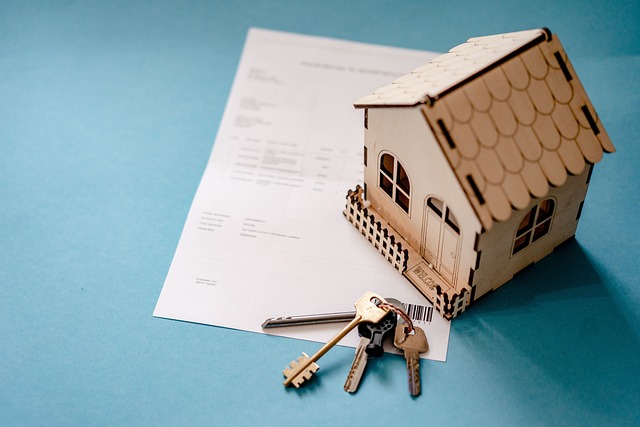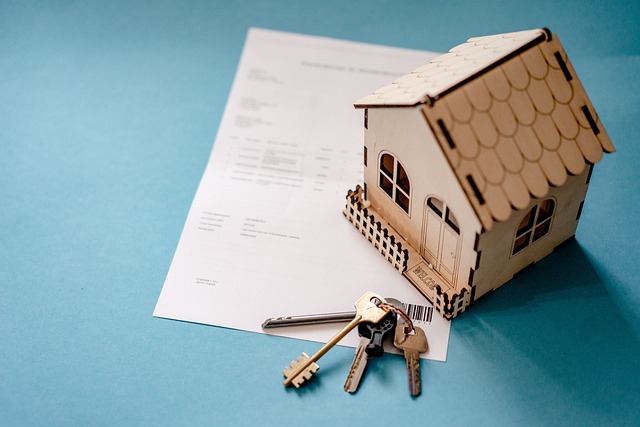Understanding local property insurance needs safeguards investments and offers peace of mind. Experts identify unique regional risks, providing personalized coverage options tailored to physical structures and belongings. Accurate risk assessment, thorough policy reviews, and staying informed about updates ensure comprehensive protection. Swift claims handling involves immediate communication, detailed documentation, and active engagement with insurers for efficient settlements.
Local Property Insurance Experts: Navigating the Complexities of Protection
Protecting your property is paramount, and understanding local insurance needs is crucial. This guide delves into the intricacies of property insurance, offering insights on various coverage types, reputable local insurers, risk assessment, policy customization, and efficient claims handling. Learn how to navigate the market, assess risks accurately, and tailor policies to suit unique properties. Discover tips for staying informed about updates and managing claims effectively, ensuring peace of mind in an ever-changing landscape of property insurance.
Understanding Local Property Insurance Needs

Understanding local property insurance needs is a critical step in safeguarding your investment and ensuring peace of mind. Every region has unique risks that can affect properties, from natural disasters like floods or earthquakes to man-made hazards such as vandalism or theft. Local experts are well-versed in these specific challenges, allowing them to tailor insurance policies to meet individual property owners’ requirements effectively.
By assessing factors like location, climate, and neighborhood statistics, these professionals can advise on the most suitable coverage options. Whether it’s comprehensive protection against multiple perils or specialized plans for high-value assets, they guide clients in navigating the complexities of property insurance. This personalized approach ensures that policyholders are adequately covered, providing a robust safety net for their homes and businesses.
Types of Property Insurance Coverage

When it comes to protecting your local property, understanding different types of insurance coverage is key. The two primary categories are property insurance and homeowners insurance. Property insurance covers physical structures, such as buildings or business facilities, against damages caused by perils like fire, storms, or theft. This type of policy ensures the replacement or repair of the insured property, up to its declared value.
Homeowners insurance, on the other hand, protects both the structure and personal belongings within the residence. It offers liability coverage, which can shield you from financial loss if someone gets injured on your property. Additionally, it compensates for living expenses in case your home becomes uninhabitable due to a covered event. Understanding these distinctions is crucial when tailoring an insurance plan that aligns with your specific needs.
Finding Reputable Local Insurers

When looking for reputable local property insurance experts, start by checking industry-recognized platforms and directories that list and review insurers. These resources often filter options based on reliability and customer satisfaction, making it easier to identify trusted names in the market. Additionally, personal referrals from friends, family, or neighbors who have had positive experiences with local insurers can be invaluable leads.
Seek out companies that specialize in property insurance and have a solid understanding of the local market. Check their credentials, licenses, and endorsements to ensure they meet industry standards. Online reviews and testimonials provide insights into their customer service, claims handling, and policy offerings. By carefully vetting potential insurers, you increase your chances of finding a reliable partner for safeguarding your investment.
Assessing Risk for Accurate Quoting

Accurately assessing risk is a cornerstone in the property insurance industry, enabling experts to quote policies that perfectly align with clients’ needs. By meticulously evaluating factors such as location, structure type, age, construction materials, and historical data on claims and natural disasters, insurers can predict potential risks and set appropriate premiums. This process goes beyond mere calculation; it involves a deep understanding of the local environment, including climate patterns, crime rates, and community preparedness measures.
For property insurance experts, risk assessment is an art that requires constant adaptation to changing circumstances. They stay updated on regional development plans, new construction technologies, and evolving safety standards. This proactive approach ensures that quotes remain competitive while maintaining the financial health of both insurer and policyholder, fostering a durable relationship built on trust and mutual understanding.
Customizing Policies to Suit Properties

When it comes to property insurance, one size does not fit all. Every home or business is unique, with its own set of vulnerabilities and needs. That’s why top local Property Insurance Experts offer customized policies tailored to the specific characteristics of each property. From the type of building construction to the location, potential risks like natural disasters, theft, or vandalism, these experts consider every detail to ensure comprehensive protection.
They work closely with clients to assess their individual circumstances and design insurance plans that go beyond basic coverage. Customized policies can include add-ons for valuable possessions, liability protection, or specific coverage for business interruption – ensuring that homeowners and businesses are secure against a wide range of unforeseen events.
Claims Process: What to Expect

When filing a claim for property insurance, it’s important to understand what lies ahead. The process typically begins with contacting your insurer and providing details about the damage or loss. They will guide you through the next steps, which often involve documenting the incident with photos and reports from local authorities or repair professionals.
Expect a thorough review of your policy to determine coverage eligibility. Your insurance provider will assess the extent of the damage and may require additional information or inspections. Timely communication and gathering all necessary documents can ensure a smoother claims process. Remember, each insurer has its own procedures, so stay informed about their specific requirements.
Staying Informed About Policy Updates

Staying up-to-date with policy updates is crucial for any property owner, as it ensures their investment is adequately protected. The world of Property Insurance is constantly evolving, with changes in regulations and market trends leading to revised coverage options. Regularly reviewing your policy document allows you to understand new inclusions, exclusions, and limitations. Many insurance providers offer digital portals or newsletters that notify clients about significant changes, making it easier to stay informed without constant vigilance.
By keeping abreast of these updates, homeowners can make informed decisions about their coverage. For instance, understanding recent amendments related to natural disasters or specific perils will help determine if additional riders are necessary. Staying informed empowers property owners to customize their insurance policies to suit their unique needs, ensuring they have the best possible protection for their assets.
Tips for Efficient Claims Handling

When it comes to efficient claims handling, swift action is key. Homeowners should immediately notify their insurance provider upon experiencing any property damage, whether from natural disasters or accidents. The faster the notification, the quicker the process can begin. It’s also beneficial to keep detailed records of all communications and documentation related to the claim, ensuring a smooth and organized experience.
During the claims handling process, clear communication is vital. Policyholders should actively engage with their insurance representatives, providing them with accurate information about the damage or loss. This includes taking photos of affected areas and noting repair estimates. Property Insurance experts recommend staying in touch throughout, as it helps streamline the claim settlement and ensures all parties are on the same page regarding expectations and timelines.
